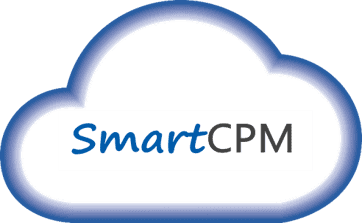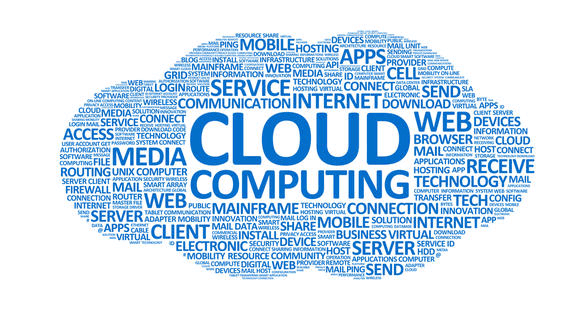Hey there, are you Single?
Having been in the SaaS, Hosting, or Managed Services business for more than two decades I’ve learned that terminology is very important. Buzz words and technology jargon often lead to confusion or at least vague interpretations. So, when I get asked if OneStream’s cloud solution is a single tenant or multi-tenant (or isolated tenant, or distinct-instance) … I take a deep breath and say, “I’m single but I’m so much more than that!”.
In my role at OneStream Software, I have the privilege of sharing our technology solution for the OneStream XF Cloud. We here at OneStream believe our prospects and customers are entitled to fully understanding the products and services they are evaluating and if they don’t do their diligence, they are doing themselves a disservice. So rather than just checking a box “Single” or “Multi”, we like to explain the full extent we go to provide security and performance capabilities for our customers. We believe the characteristics of the solution need to be vetted to show the value.
Cloud Computing Models vs. Customer Value
If you clicked this link and have come this far, you probably have a general idea of Cloud Tenancy. If not, let me try to give a simple definition:
Multi-Tenant SaaS – all subscribers (tenants) are in the same environment, same application, same database and they are all impacted at the same time by the same maintenance schedules. Think of it as everyone is sharing the same machines and environment.
Single-Tenant SaaS – all subscribers (tenants) have a distinct version of the application in their own database with dedicated compute resources and machines. I’ll generally refer to this as a “distinct instance”
The difficulties with multi-tenant SaaS in the corporate performance management (CPM) market are magnified due to the sensitivity of the data as well as the unique usage calendars for each customer. Very specifically customers have said: “I don’t want my financial data mixed with other customers and I don’t want to be told when I’m taking an upgrade”. I could expound on the financial reasons (for the provider) that multi-tenant SaaS is so prevalent but that is not the point of this little article, let’s talk about being Single.
One of the key advantages of a single tenant SaaS platform is that each subscriber has a distinct instance, environment, binaries, with dedicated compute and capacity on their own database and web servers and application servers. This eliminates the “mixing customer data” issue and can provide performance advantages vs. multi-tenant SaaS. Another advantage is the customers aren’t forced to upgrade on the vendor’s schedule. They can upgrade on their own schedule, with some limitations, to avoid disruption. Customers need a flexible or “smart cloud” solution to meet their unique needs.
a distinct instance, environment, binaries, with dedicated compute and capacity on their own database and web servers and application servers. This eliminates the “mixing customer data” issue and can provide performance advantages vs. multi-tenant SaaS. Another advantage is the customers aren’t forced to upgrade on the vendor’s schedule. They can upgrade on their own schedule, with some limitations, to avoid disruption. Customers need a flexible or “smart cloud” solution to meet their unique needs.
When it comes to single-tenant, or isolated tenancy or distinct-instance it is all about client value. OneStream provides a solution that can meet the demanding requirements of customers truly wanting the best in flexibility, performance, and security. Below are some questions and answers regarding capabilities that companies should evaluate beyond “Are you Single?”
Solution Capability Questions
Q: Can each service instance scale to meet each subscriber or is it one-size fits all?
A: Using the Microsoft Azure Cloud, OneStream can adjust the compute and capacity for each subscriber instance to meet the unique characteristics of the subscriber’s solution.
Q: Is there segregation in networks not just compute?
A: OneStream deploys each customer in a dedicated Azure Virtual Network, Active Directory Tenant, in a dedicated Azure subscription and resource group. This includes Network Security Groups configured between application tiers to provide increased isolation and encryption for data in transit behind the border firewall.
Q: Are there Unique Encryption Keys per tenant as well as encryption for data in-transit and at-rest?
A: OneStream provides unique encryption keys per tenant and allows customer-provided encryption keys for the Web Tier. All data is encrypted in transit, even in the internal network, and all data is encrypted at rest.
Solution Policy Questions
Q: Does the service provider mandate upgrades on their schedule or your schedule?
A: OneStream provides customers tools to monitor their environment utilization so they can be informed in adjusting or right-sizing the environment to meet their performance or capital targets.
Q: Does the service provider provide transparency into the service utilization?
A: OneStream provides customers tools to monitor their environment utilization so they can be informed in adjusting or right-sizing the environment to meet their performance or capital targets.
Q: Is the customer responsible for running backups or does OneStream handle that?
A: With OneStream XF Cloud, supported by MS Azure, we guarantee 99.95% uptime and the data is backed up to the minute for 35 days, with 3X local redundancy as well as geographic redundancy.
Bonus Question
Q: Can the service provider autonomously scale the environment to meet expected demands of the customer and adjust within customer defined cost tolerance?
A: Yes, customers can request additional resources as needed today. But watch for upcoming news about OneStream’s Smart(er) XF Cloud solution we are calling Autonomous CPM, which was highlighted at our Splash 2018 User Conference and Partner Summit.
Learn More
To learn more about OneStream’s approach to the cloud, download our white paper titled: “CPM On-Premise or Cloud: Have it Your Way”
About the Author:
C.T. Brinkman is a OneStream Solution Consultant with nearly 20 years of experience in implementations and technical sales for corporate performance management (CPM) solutions. C.T. has worked with customers of all sizes and industries providing leadership in the technical development and deployment of strategic solutions. In recent years with the emergence of Cloud and SaaS solutions, he has assisted customers in the understanding of Cloud Solutions, Cloud Security, Audit and Policy of CPM solutions. Prior to joining OneStream, he was part of the North American Strategic Services team for Oracle where he was a Pre-Sales Applied Technology Engineer supporting Oracle’s largest upmarket and named accounts. C.T. is a graduate of Bowling Green State University with a Bachelor of Science in Computer Science.
Get Started With a Personal Demo


